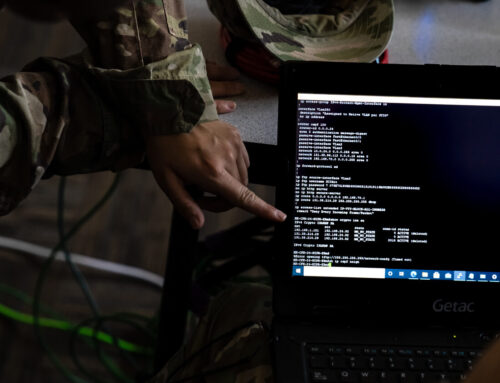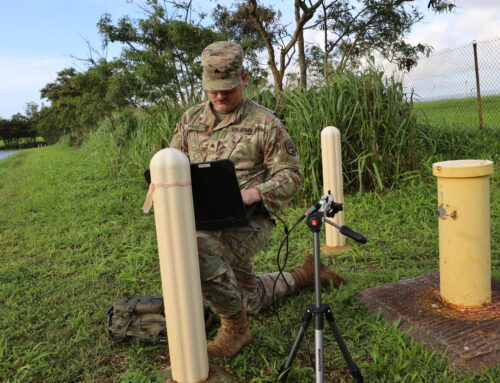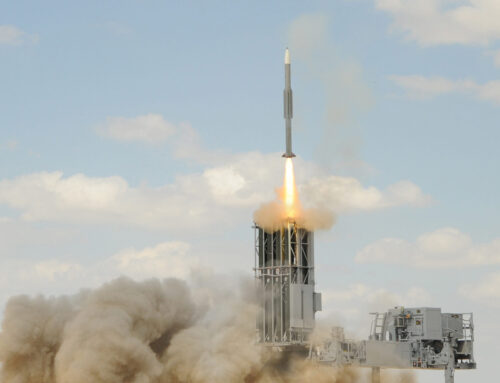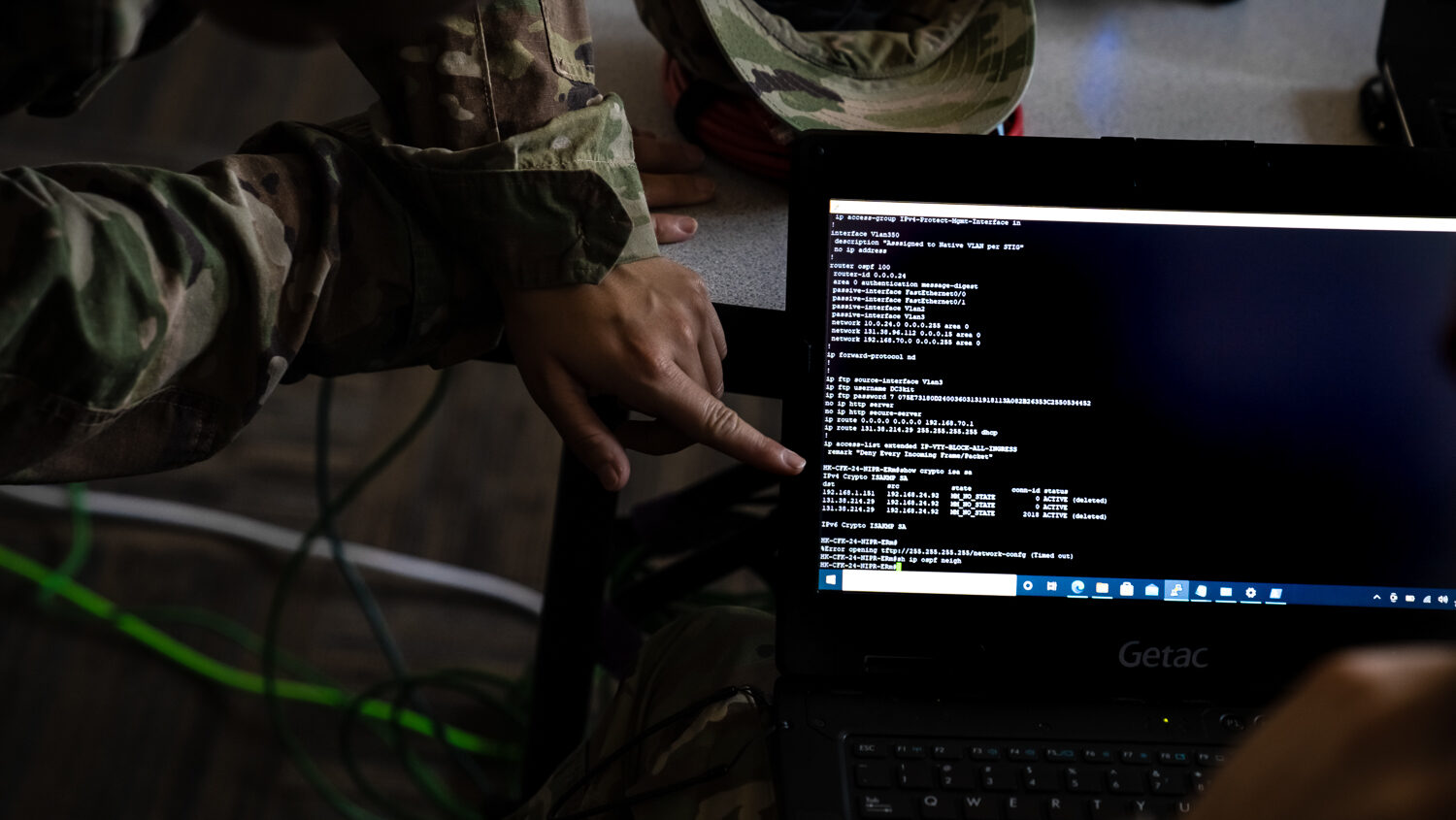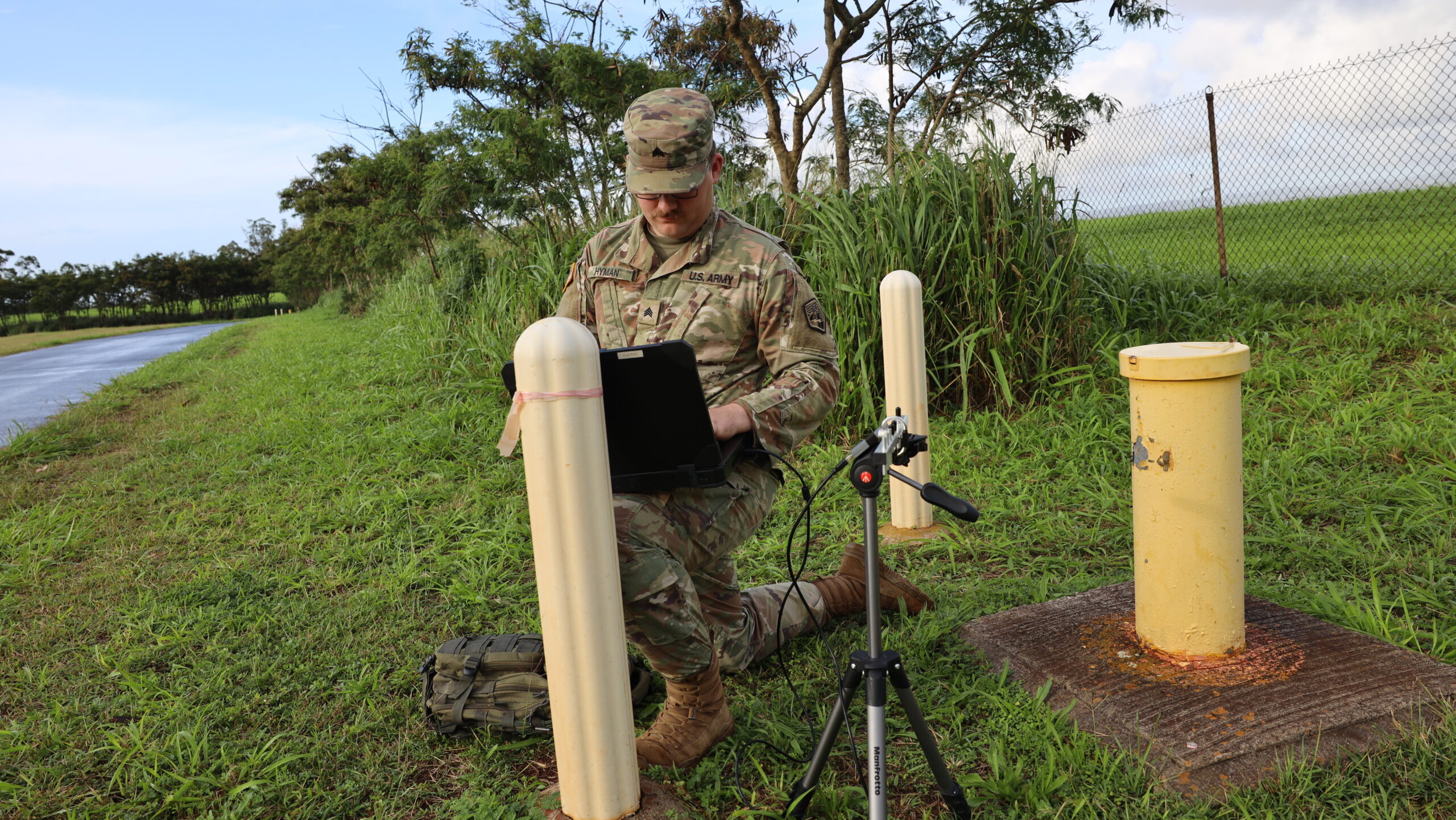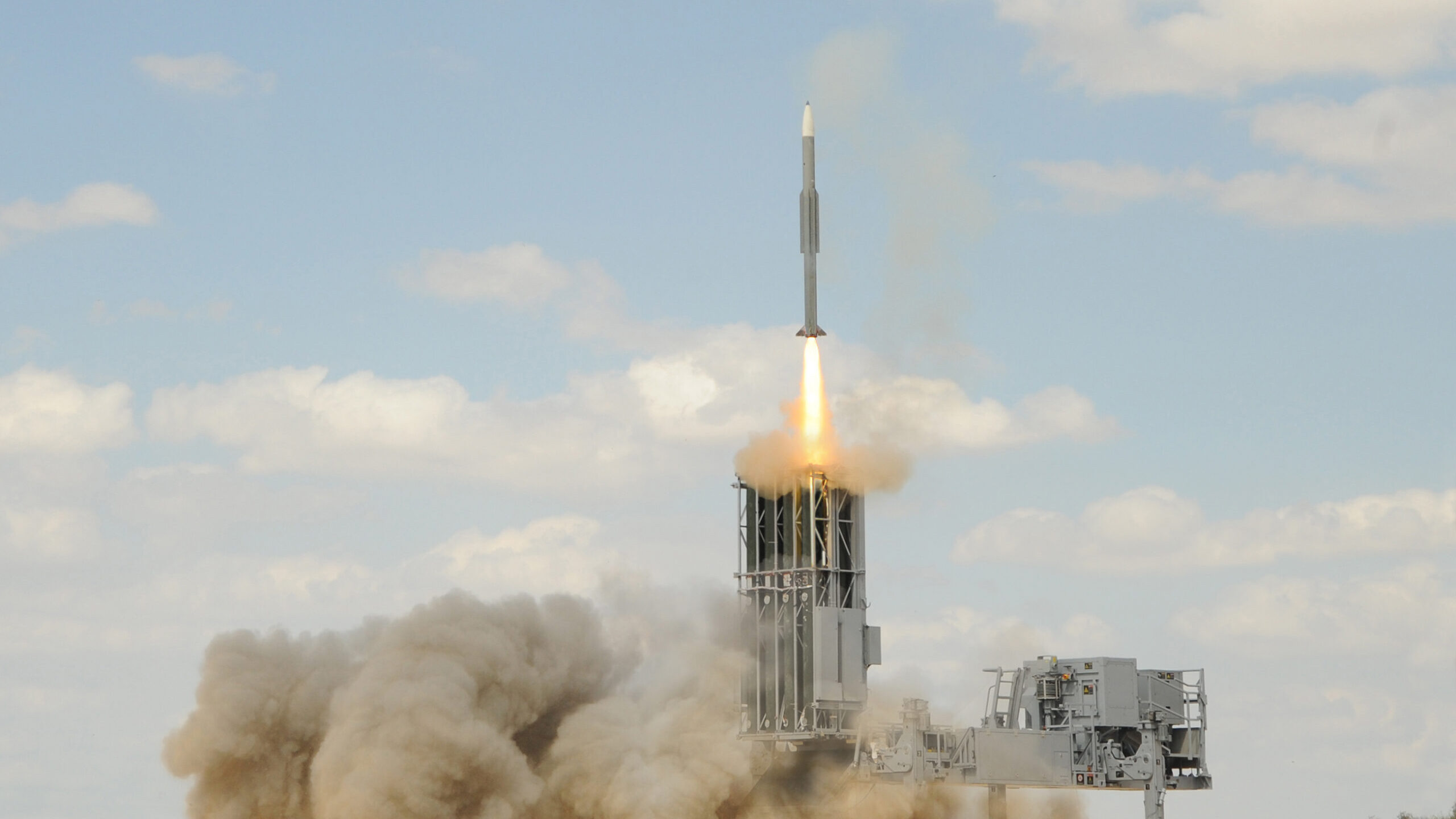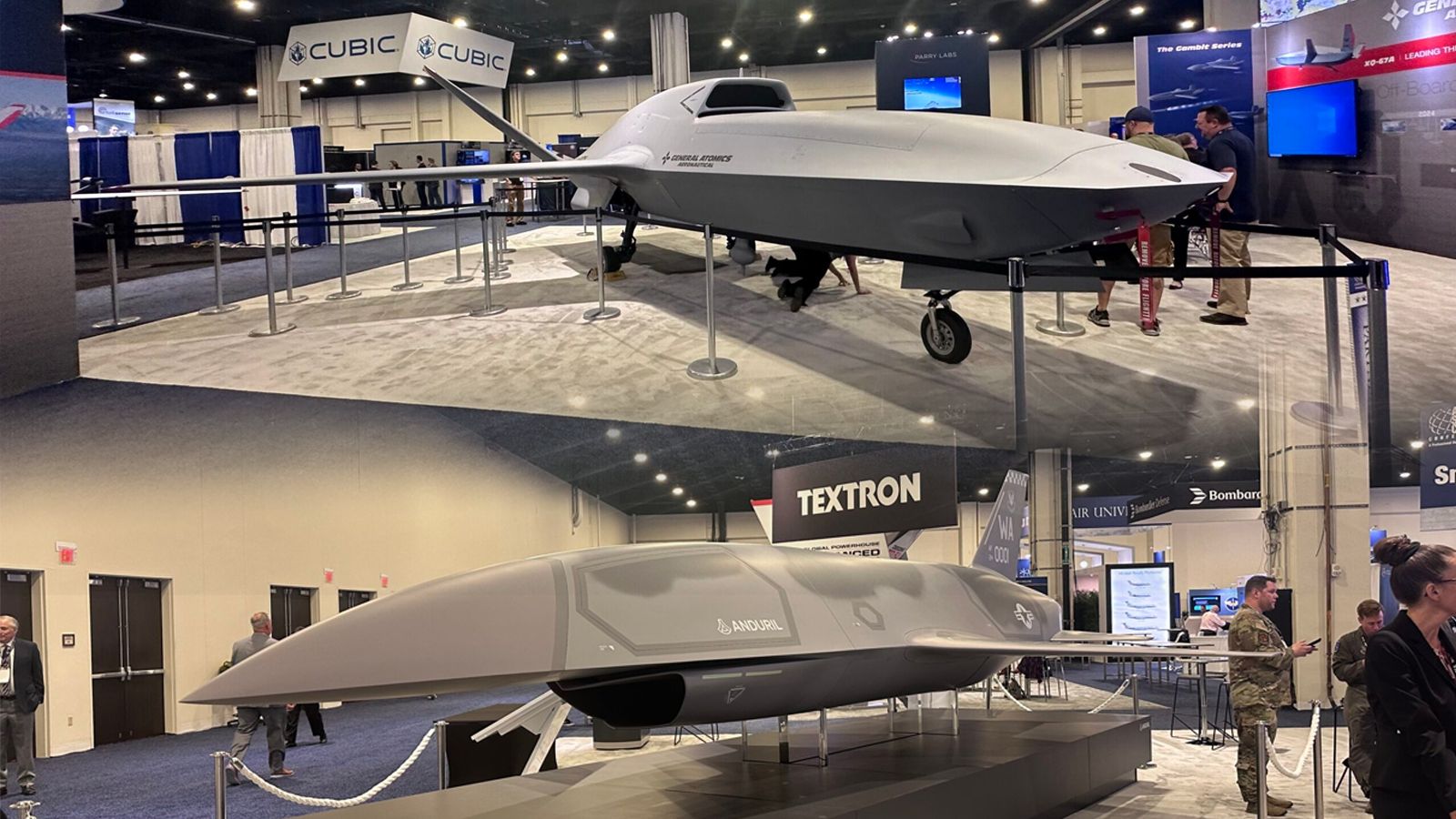Soldiers assigned to 1st Battalion, 6th Field Artillery Regiment, 41st Field Artillery Brigade fire M31 Guided Multiple Launch Rocket Systems from their M270A1 MLRS during the Thunder Cloud live-fire exercise in Andoya, Norway on the night of Sept. 15, 2021. (Official U.S. Army photo by Maj. Joe Bush)
FARNBOROUGH 2024 — Key executives from Lockheed Martin and RTX said on Monday that while they believe L3Harris subsidiary Aerojet Rocketdyne is working hard to improve solid rocket motor delivery rates, they are still behind where the weapons manufacturers need them to be.
“There’s a lot of work to do there,” Tim Cahill, Lockheed’s vice president of missile and fire control, said during an interview with Breaking Defense at Farnborough Airshow on Monday. “I think that L3 is earnest in fixing the issues and making the right investments. We are still struggling to get everything we need as a builder.”
Separately on Monday, Tom Laliberty, president of Raytheon’s land and air defense systems business, said Aerojet’s overall output was currently a “mixed bag,” with some products facing heavy delivery delays and others staying on schedule.
“I don’t want to, kind of, paint L3 with a broad brush,” he said during a Monday briefing to reporters. “What I will tell you is even if they were performing exquisitely on all programs, there’s still not enough capacity.”
Solid rocket motors are a key need for weapons such as Lockheed’s Guided Multiple Launch Rocket System (GMLRS) rounds where production is drastically ramping up to backfill stocks depleted during the war in Ukraine.
Aerojet was already struggling to meet delivery requirements for its customers when a vicious internal board conflict broke out in early 2022. When the smoke cleared, the company was set up for sale to L3Harris, but the high-level damage led to Lockheed’s public frustrations with the pace of deliveries. Lockheed’s competitor Northrop Grumman, which bought Orbital ATK in 2018, is the only other major US supplier of solid rocket motors, although smaller firms have begun popping up.
An L3Harris spokeswoman said the company had made “significant investments” to improve solid rocket motor delivery and production capacity, including modernizing facilities, automating portions of the manufacturing process, and investing in its supply chain.
“Nearly a year later, solid rocket motor production has increased, on-time delivery has increased, and we have reduced late deliveries by nearly half,” the spokeswoman said. “While great progress has been made, there remains work to be done, and the company is keenly focused on continuing improvements to address customers’ current and future needs.”
Both Aerojet and Northrop currently produce solid rocket motors for GMLRS, but even more capacity is needed to meet demand, Cahill said.
“We’re asking the companies not just to solve current problems, but we’re asking them then to continue to produce at higher and higher rates. So that is a stress on the system. That’s a difficult thing to do in any environment,” Cahill said. In L3Harris’s case, it’s “even more difficult when you’re acquiring a company and making changes and integrating them in. So we appreciate the challenges that they’re facing.”
Lockheed CEO Jim Taiclet has said that the company is on a “campaign-like” mission to broaden the solid rocket motor industrial base, a position Cahill doubled down on, saying that additional vendors are needed to “to take off some of the load” on current suppliers as munitions production rates continue to increase.
There are a handful of potential new entrants to the solid rocket motor industry that Lockheed is working with on prototypes and small-scale demonstrations, with some of those companies also receiving direct investment from the defense giant, said Cahill, who declined to specify those vendors.
Last summer, Lockheed raised concerns with the Defense Department and Federal Trade Commission that L3Harris had not provided adequate assurances to Lockheed that it would ensure access and fair pricing to solid rocket motors as a merchant supplier, Reuters reported in June 2023. However, Lockheed’s concerns failed to gain traction and the US government allowed the L3Harris deal to close in July 2023.
Lockheed itself had attempted to buy Aerojet for $4.4 billion but walked away from the deal in 2022 after the FTC sued to block the deal over concerns that Lockheed — a major customer of Aerojet — could use an Aerojet acquisition to disadvantage its major competitors in the weapons and space markets.
Meanwhile, RTX has also expressed frustration with Aerojet’s recent solid rocket motor output, pointing to supply chain and labor as two inefficiencies the rocket maker would need to correct.
Michael Marrow contributed to this report.




